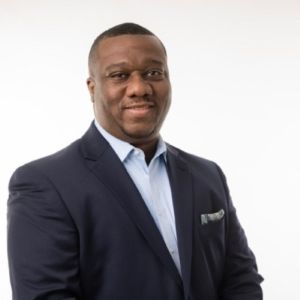This article is part of Callahan & Associates’ “CDFI Grants In Action,” a limited editorial series that showcases how credit unions leverage CDFI funding to advance their mission and deliver measurable impact for members. To learn how CDFI certification can change lives and unlock opportunities at your credit union, visit CU Strategic Planning, A Callahan Company.
James Hunter knows firsthand what homeownership can mean for a family’s future.
“Some people’s first love was basketball or football, mine was mortgages,” says Hunter, chief advocacy and culture officer at The New Orleans Firemen’s Federal Credit Union ($275.0M, Metarie, LA). “I’m enamored by homeownership.”
The Problem
Hunter’s enthusiasm for homeownership meets a tough reality in New Orleans, where economic barriers put buying a home out of reach for many.
A 2024 report found approximately 53% of New Orleans residents were homeowners, although that figure does jump slightly to 62% when expanded to cover the entire metro area. Still, the prevalence of low-wage jobs and one of the highest poverty rates in the nation — the Louisiana poverty rate hovers around 19%, compared with 10.6% nationally — suppresses homeownership in The Big Easy.
There are broader problems at play, as well. Louisiana ranks at or near the bottom of the nation when it comes to education, infrastructure, crime, opportunity, and more, according to a 2025 U.S. News & World Report study. Those factors and others have led many people to believe homeownership — and financial wellbeing in general — is simply out of reach for them.

“We have a unique situation where you have people who have been hit with persistent poverty, which is three generations of people who have experienced nothing but the same mindset [and] the same potential outcomes,” Hunter says. “That can stem from how you grew up to the hurricanes we’ve experienced and also going into more racial things like redlining. There are many things we’ve experienced here in Louisiana that can impact a lot of different areas.”
Like much of the country, rising prices and interest rates combined with inventory challenges have exacerbated the situation. And that’s before taking into account sky-high insurance premiums, which put housing even further out of reach for many borrowers.
“I’ve been in situations where someone’s insurance and taxes are higher than their principal and interest payments on their mortgage,” Hunter says. “That’s totally backward and sometimes prices borrowers out of a home.”
The Solution
Thanks to a $900,000 grant from the U.S. Treasury’s CDFI Fund, New Orleans Firemen’s is helping members get over that hump with a 100% loan-to-value mortgage that requires no down payment and no private mortgage insurance.
According to Hunter, the 100% LTV helps cover the down payment and other upfront costs. Additionally, he says, real estate agents may negotiate with sellers and builders to cover closing costs, and the credit union’s policies provide enough wiggle room to bridge that gap where needed.
“Two of the biggest things when buying a home are the down payment and the closing costs,” the advocacy and culture officer says. “That’s a nice chunk of change. A down payment and closing costs can add up to a lot of money people don’t have.”
In those instances where members can’t yet qualify, he adds, the credit union looks for ways to help people improve their finances and set a little money aside in the hope that improved savings and credit can get them to the finish line eventually.
The Results
Since launching the program a little more than five years ago, New Orleans Firemen’s has closed slightly fewer than 60 of these loans. That might not be a large number, but Hunter is quick to defend the program, noting the difficult environment for buyers these past few years.
“We have seen people who did not think they could apply or get approved for a mortgage find themselves in a home,” he says.
For example, a contractor who did some work for Judy Delucca, the credit union’s CEO, revealed during a conversation that he was struggling to qualify for a mortgage.
“We introduced him to our program and helped him not only get the home he wanted but also looked at his business and helped him expand his fleet,” Hunter says.
One element that makes the program so inspiring, Hunter adds, is that its success often flies in the face of conventional wisdom and helps members understand that they can take control of their financial lives.
“People listen to the news media and other resources that say interest rates are high and this is not the time to buy,” he says. “Why not find out if you can get qualified? And if not, what can you do to get ready?”
Although solving Louisiana’s insurance crisis will require legislative action, Hunter says finding ways to help more New Orleans residents achieve homeownership is a major growth and relationship opportunity for the credit union. It plans to continue to advocate for members and help them achieve financial success, whether that be through the CDFI Fund, foundations, or other avenues. That commitment recognizes both the challenges and the promise of homeownership and resonates with Hunter on a personal level.
“I come from an environment where homeownership wasn’t often possible,” he says. “So to be in a place where I see people be able to bridge that gap and build generational wealth is invaluable.”

